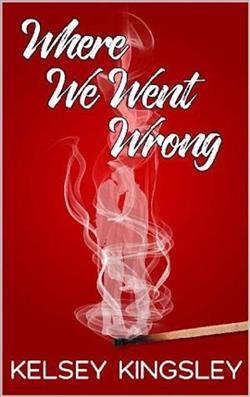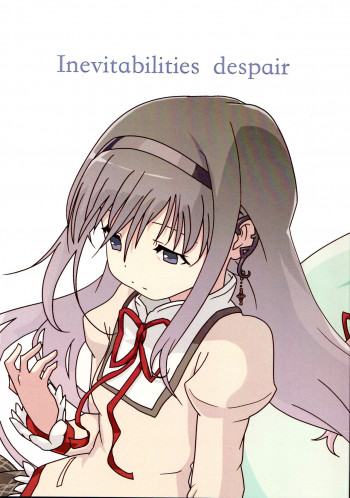Martial Peak Reviews
Kelsey Kingsley's Where We Went Wrong is a poignant exploration of human fragility, resilience, and the complex web of relationships that define our lives. At its core, the novel is a deeply emotional journey that delves into the themes of addiction, redemption, and the often tumultuous path to self-discovery. Through the eyes of Vinnie Marino, Kingsley crafts a narrative that is both heart-wrenching and hopeful, offering readers a raw and unfiltered look at the struggles of a man teetering on the edge of despair.
Vinnie Marino is a character who embodies the essence of a troubled soul. His life, marred by abandonment, drug addiction, and personal tragedy, is a testament to the enduring human spirit. Kingsley does an exceptional job of painting Vinnie as a multi-dimensional character, one who is flawed yet inherently relatable. The author's ability to delve into Vinnie's psyche, revealing his vulnerabilities and fears, is a testament to her skill in character development. As readers, we are drawn into Vinnie's world, feeling his pain and rooting for his redemption.
The novel's central theme of addiction is handled with sensitivity and authenticity. Kingsley does not shy away from depicting the harsh realities of substance abuse, nor does she romanticize the struggle for sobriety. Instead, she presents a balanced portrayal of the challenges faced by those battling addiction, highlighting the internal and external conflicts that accompany the journey to recovery. Vinnie's struggle to stay sober amidst the chaos of his life is a powerful narrative thread that underscores the novel's emotional depth.
Another significant theme in Where We Went Wrong is the impact of familial relationships on personal growth and healing. Vinnie's relationship with his father, who is diagnosed with a terminal disease, serves as a catalyst for much of the novel's emotional tension. The impending loss forces Vinnie to confront his past and reevaluate his priorities, adding layers of complexity to his character arc. Kingsley masterfully captures the nuances of father-son dynamics, illustrating how love, regret, and forgiveness can coexist within the same relationship.
Andy Bennett, the novel's other central character, is a beacon of hope in Vinnie's tumultuous life. Her presence introduces a sense of stability and possibility, offering Vinnie a glimpse of what life could be beyond his struggles. However, Andy's secret adds an intriguing layer of suspense to the narrative, challenging Vinnie's perceptions and forcing him to question the very foundation of his newfound hope. Kingsley expertly weaves this subplot into the larger narrative, creating a sense of tension that keeps readers engaged.
The novel's exploration of secrets and their potential to both heal and harm is a recurring motif that adds depth to the story. Andy's secret, while initially a source of potential downfall, ultimately serves as a catalyst for Vinnie's growth. This duality is a testament to Kingsley's ability to craft a narrative that is both unpredictable and deeply resonant. The revelation of Andy's secret is handled with care, ensuring that it enhances rather than detracts from the overall impact of the story.
In terms of writing style, Kingsley employs a straightforward yet evocative prose that captures the raw emotions of her characters. Her ability to convey complex emotions with clarity and precision is one of the novel's standout features. The dialogue is authentic and reflective of the characters' personalities, further immersing readers in the story. Kingsley's use of vivid imagery and metaphor adds a poetic quality to the narrative, enhancing its emotional impact.
Comparatively, Where We Went Wrong shares thematic similarities with works like A Million Little Pieces by James Frey and Beautiful Boy by David Sheff, both of which explore the harrowing journey of addiction and recovery. However, Kingsley's novel distinguishes itself through its focus on the interplay between personal redemption and the influence of relationships. While Frey and Sheff offer a more introspective look at addiction, Kingsley broadens the scope to include the transformative power of love and forgiveness.
Overall, Where We Went Wrong is a compelling and emotionally charged novel that offers a profound exploration of the human condition. Kelsey Kingsley has crafted a story that resonates on multiple levels, inviting readers to reflect on their own lives and the relationships that shape them. The novel's themes of addiction, redemption, and the power of secrets are handled with nuance and sensitivity, resulting in a narrative that is both thought-provoking and deeply moving.
For readers seeking a story that is both challenging and uplifting, Where We Went Wrong is a must-read. Kingsley's ability to capture the complexities of the human experience ensures that this novel will linger in the minds of readers long after the final page is turned. It is a testament to the enduring power of storytelling and the capacity for change that lies within us all.






![Girlfriends [SS]](/upload/pic/manga/girlfriends--ss-.jpg)

















Reviews 0
Post a Reviews: